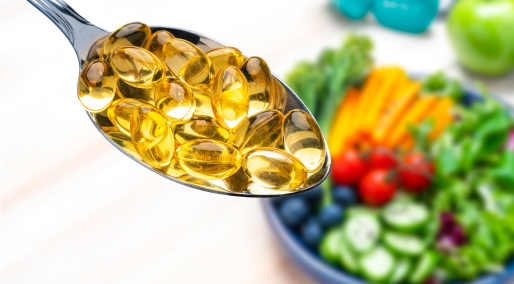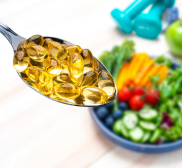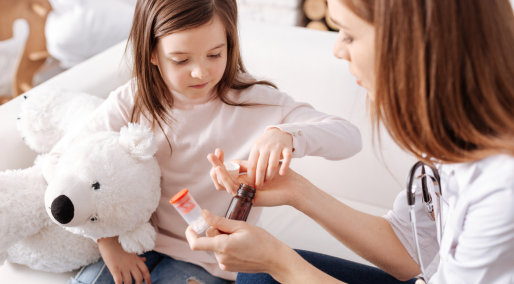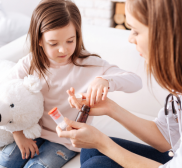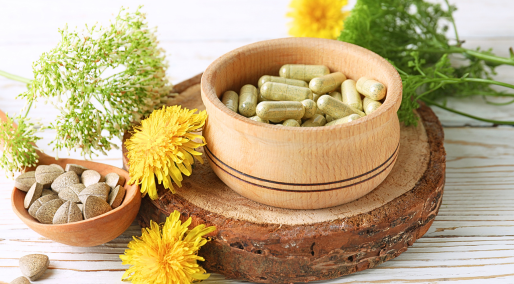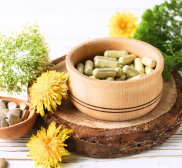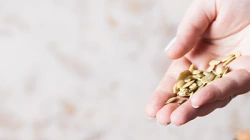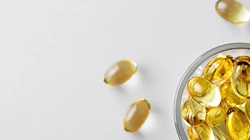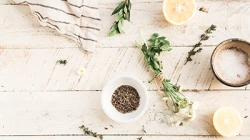


Wojciech Sankiewicz
Wojciech Sankiewicz
Wojciech Sankiewicz
Date Added: 22-04-2024
Travel with no limits - supplemental travel support
During a long journey, our body is exposed to high stress. Different time zones, different climates, completely different food - these factors have turned many tourists' dream vacations into a nightmare, even a fight for survival. So what can we do to ensure that stories of jet lag or pharaoh's revenge never end up in our vacation diary? My name is Wojciech Stankiewicz and today I will tell you how you can prepare for your journey from a dietary point of view.
During a long journey, our body is exposed to high stress. Different time zones, different climates, completely different food - these factors have turned many tourists' dream vacations into a nightmare, even a fight for survival. So what can we do to ensure that stories of jet lag or pharaoh's revenge never end up in our vacation diary? My name is Wojciech Stankiewicz and today I will tell you how you can prepare for your journey from a dietary point of view.
1. Jet lag
Air travel is an incredible benefit that allows us to explore corners of the world during our often too short vacations. Unfortunately, this benefit is a huge shock to our bodies, as changing time zones disrupts our natural daily rhythm, which affects practically all processes in our bodies. This sudden change causes general discomfort, making us feel tired and apathetic, taking away the joy of vacation. Thankfully, the devil is not as bad as it's painted, and there is a relatively simple way to quickly adjust to this change.
The daily rhythm of our bodies is regulated by the light emitted by the sun. Daytime is a signal that stimulates our body to act, while nighttime calms it. Therefore, on the first day of travel, let's do everything in our power to adjust to the day and night rhythm. If we arrive at our destination early in the morning feeling tired, let's skip naps at the hotel. Let's go out in the sun and stay moderately active until late afternoon.
At this point, it's important to avoid wearing sunglasses. Sunglasses limit the amount of light entering our eyes, tricking our brain into thinking that night is approaching, and further activating processes responsible for preparing for sleep.
Another important thing, when feeling tired from airplane travel and waiting until evening to go to sleep, is to ensure proper hydration. We should make sure to drink plenty of highly mineralized water. Minerals in such water, especially magnesium, will stimulate the work of our mitochondria, which will start producing more energy. If we don't have access to such water, it's worth getting any electrolyte supplement or at least a magnesium supplement.
Speaking of hydration, we can't fail to mention alcohol. Alcohol is our biggest enemy on the first day of travel. Not only is the body shocked by the disruption of the daily rhythm, but you also want to poison it with alcohol, and if you do, adjusting to the new conditions will not take a day, it may even take a whole week.
If you manage to stay awake until late afternoon, coincide with the sunset and go to sleep. The next day, don't set an alarm, sleep as much as you need, but remember to have the blinds open so that your body can naturally wake up under the influence of the rising sun.
But what to do in the opposite situation? When you arrive awake, but it's nighttime at your destination? First of all, try not to sleep on the plane, prepare something to do for the entire journey, a movie to watch, a book to read, or anything else. Also, up to 6 hours before the planned landing, don't be afraid to drink coffee, but then try to avoid it. When you land in the evening, don't think about any late-night party, just go to sleep. If you feel you can't fall asleep, don't lie in bed senselessly. Make yourself a chamomile, lemon balm, or valerian tea, or have a non-alcoholic beer, and spend a moment reading a book, take a hot bath, or go for a short walk, but avoid exposure to bright, LED light, which is stimulating. To enhance the effects of the mentioned herbs, you can take magnesium, which also helps with falling asleep. And if nothing works, it's worth having a melatonin supplement on hand, which will definitely improve your sleep. However, be careful with it so as not to remain in zombie mode the next day, so I recommend using the smallest possible doses.
For a good well-being while traveling, it is crucial for us to adjust to the rhythm of the sun as quickly as possible, to the rhythm of day and night. Therefore, our first day can be crucial for the rest of our vacation, so don't ruin it.
The daily rhythm of our bodies is regulated by the light emitted by the sun. Daytime is a signal that stimulates our body to act, while nighttime calms it. Therefore, on the first day of travel, let's do everything in our power to adjust to the day and night rhythm. If we arrive at our destination early in the morning feeling tired, let's skip naps at the hotel. Let's go out in the sun and stay moderately active until late afternoon.
At this point, it's important to avoid wearing sunglasses. Sunglasses limit the amount of light entering our eyes, tricking our brain into thinking that night is approaching, and further activating processes responsible for preparing for sleep.
Another important thing, when feeling tired from airplane travel and waiting until evening to go to sleep, is to ensure proper hydration. We should make sure to drink plenty of highly mineralized water. Minerals in such water, especially magnesium, will stimulate the work of our mitochondria, which will start producing more energy. If we don't have access to such water, it's worth getting any electrolyte supplement or at least a magnesium supplement.
Speaking of hydration, we can't fail to mention alcohol. Alcohol is our biggest enemy on the first day of travel. Not only is the body shocked by the disruption of the daily rhythm, but you also want to poison it with alcohol, and if you do, adjusting to the new conditions will not take a day, it may even take a whole week.
If you manage to stay awake until late afternoon, coincide with the sunset and go to sleep. The next day, don't set an alarm, sleep as much as you need, but remember to have the blinds open so that your body can naturally wake up under the influence of the rising sun.
But what to do in the opposite situation? When you arrive awake, but it's nighttime at your destination? First of all, try not to sleep on the plane, prepare something to do for the entire journey, a movie to watch, a book to read, or anything else. Also, up to 6 hours before the planned landing, don't be afraid to drink coffee, but then try to avoid it. When you land in the evening, don't think about any late-night party, just go to sleep. If you feel you can't fall asleep, don't lie in bed senselessly. Make yourself a chamomile, lemon balm, or valerian tea, or have a non-alcoholic beer, and spend a moment reading a book, take a hot bath, or go for a short walk, but avoid exposure to bright, LED light, which is stimulating. To enhance the effects of the mentioned herbs, you can take magnesium, which also helps with falling asleep. And if nothing works, it's worth having a melatonin supplement on hand, which will definitely improve your sleep. However, be careful with it so as not to remain in zombie mode the next day, so I recommend using the smallest possible doses.
For a good well-being while traveling, it is crucial for us to adjust to the rhythm of the sun as quickly as possible, to the rhythm of day and night. Therefore, our first day can be crucial for the rest of our vacation, so don't ruin it.
2. Pharaoh's Curse
Jet lag problems are one of the hardships of travel. Another significant challenge is the pharaoh's curse, which is just waiting to pass on his throne to us poor tourists. Fortunately, proper preparation weeks before the trip can greatly reduce the risk of its occurrence. However, there are no guarantees and traveling to the other side of the world changes not only the time but also the climate and the overall environment in which we will be living, including the cultural environment. Not only do not all cultures pay as much attention to hygiene and sanitation as we do in Europe, but the type of diet served also differs significantly from what we are familiar with. It is extremely exciting to try local dishes, but we must be aware that it may not be a comfortable situation for our stomachs, specifically our intestines.
Hundreds, even thousands, of different microorganisms inhabit our intestines, creating a unique ecosystem called the gut microbiome. The structure and types of these microorganisms, as well as their quantity, depend on environmental factors, including our diet and lifestyle. It has been proven that healthy intestines lead to a strong, reliable immune system, which is crucial for protecting us from various bacteria and pathogens while traveling.
But what exactly does having healthy intestines mean? Healthy intestines are primarily characterized by a diverse microbiota with a wide variety of species. Therefore, it is recommended to use probiotic therapy before your planned trip to introduce desirable microorganisms into your gut. To ensure any positive effects from this therapy, it is advisable to start using it at least a month before your trip.
When it comes to specific bacterial strains, there is a wide range to choose from, depending on your destination. Therefore, I leave this topic for you to explore on your own, or feel free to ask questions in the comments section. However, some universal choices include various strains of bifidobacterium or lactobacillus.
Furthermore, healthy intestines are ones that are tight, preventing unwanted pathogens from entering the bloodstream. To maintain tight intestines, it is essential to focus on a healthy, anti-inflammatory diet and lifestyle. Unfortunately, there are no quick fixes for this, as achieving tight intestines is a long process. Therefore, the best approach is to stop damaging them by reducing alcohol consumption, quitting smoking, avoiding highly processed foods, especially those high in sugar and trans fats, ensuring a healthy sleep, exercise, and stress management routine, while also incorporating more antioxidant-rich foods and Omega 3 fatty acids into your diet. Supplementing with anti-inflammatory agents such as N-acetylcysteine or Omega 3 fatty acids can significantly improve the overall condition of your body, including your gut health.
3. Summary
So in summary, preparing for a trip involves several key steps that can help minimize negative effects such as jet lag or uncomfortable feelings related to climate and food. Optimizing the circadian rhythm through exposure to natural sunlight and proper hydration are crucial both after arriving in a new place and before the journey. Avoiding alcohol and ensuring healthy sleep can also significantly impact adapting to a new environment. It's also important to take care of gut health by using probiotics and consuming a nutrient-rich diet, which can support the body's immune system and improve well-being during travel. Additionally, long-term actions such as avoiding harmful substances, leading a healthy lifestyle, and using gut health-supporting supplements can bring lasting benefits for the entire body not only during travel but also in everyday life. Equipped with this knowledge, you can confidently explore the world without fear of losing the pleasure of travel.
Thank you for watching this video until the end. I believe you will make use of the information provided, and if you have any questions related to the topic, feel free to ask in the comments section. In the meantime, have a great day and see you soon.
Rate the text

AUTHOR
Wojciech Sankiewicz
Wojciech Sankiewicz
Wojciech Sankiewicz
I am involved in optimizing health and quality of life, guided by the philosophy of biohacking. I help implement a healthy diet, optimize sleep, regeneration, and spontaneous physical activity, as well as plan sensible supplementation. In my work, I combine knowledge from a wide range of fields. My expertise lies in programming such actions so that 20% of effort results in 80% of effects...
I am involved in optimizing health and quality of life, guided by the philosophy of biohacking. I help implement a healthy diet, optimize sleep, regeneration, and spontaneous physical activity, as well as plan sensible supplementation. In my work, I combine knowledge from a wide range of fields. My expertise lies in programming such actions so that 20% of effort results in 80% of effects...
Comments (0)








